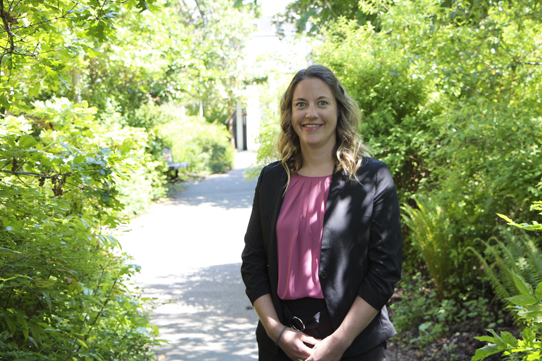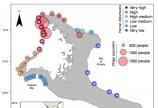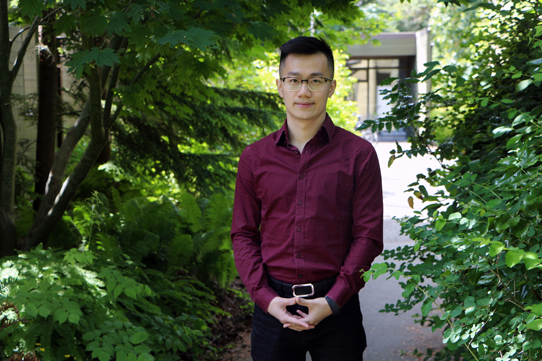2018 CAPI Student Fellowship awards
June 4, 2018
CAPI is pleased to announce the winners of our 2018 Student Research Fellowships in support of student research and study in the Asia-Pacific region

Project title: Coral reef recovery rates along a gradient of local disturbance following unprecedented heat stress
Supervisor: Julia K. Baum, Associate Professor, Department of Biology, University of Victoria
Background
Coral reefs are vitally important ecosystems facing numerous chronic and acute stressors, including an increase in the frequency and severity of pulse-heat stress events, like El Niños. The 2015-16 El Niño triggered catastrophic bleaching around the world. On Kiritimati (Christmas Island), the epicentre of the event, 90% of corals bleached and died during this event. While the full impacts are not fully understood yet, this mass mortality event provides an opportunity to quantify recovery rates and to understand the mechanisms influencing recovery. Coral recruitment is essential to the recovery of coral reefs, and recruitment rates are one of five major factors that determine if a reef will recover or undergo a regime shift. Discovering what drives coral reef recovery will not only help to maintain these important ecosystems, but also has immense implications in human welfare, especially on Pacific Island nations where they rely heavily on healthy coral reefs.
gallery images courtesy Kristina Tietjen:



Proposed activities
In June 2018 I will return to Kiritimati for three weeks where I will use SCUBA to collect additional recruitment census videos, resample recruitment tiles, and take benthic photographs to assess coral community structure and recovery. Census videos have been collected at 31 sites along the local disturbance gradient since 2013 spanning from before, during, and after the El Niño. Analyses of these videos by myself and two trained volunteers provide high resolution estimates of recruit and juvenile corals populations. Importantly, this field expedition will allow me to collect and sample 280 recruitment tiles that I deployed last summer at 14 sites spanning the atoll’s disturbance gradient. I will quantify recruits from each tile and use DNA sequencing (COI region) to then identify the recruits, thus allowing me to further quantify recruitment rates and characterize the community structure and diversity of coral recruits. By quantifying coral recruitment levels and taxonomic variability across a human disturbance gradient during the initial two years following a mass mortality event, my research will provide new insights into coral reef recovery mechanisms and resilience.
More info

Project title: Uber Revolution: state governance of capital and labor in China, France, and the United States of America
Supervisor: Dr. Guoguang Wu, Professor (Political Science and History) and CAPI China Chair, University of Victoria
Project summary
My project involves a comparative and institutionalist investigation of how China, France, and the USA - three states with very different state capacity, capital market, and labor regime - govern Uber, a technological and ridesharing start-up heralding a new mode of capital operation and employment relationship called “gig economy.”
Background
Empirically, China represents a fascinating case to explore Uber’s interaction with state regulation for four reasons. Firstly, China remains the most restrictive foreign direct investment (FDI) regulatory regime out of 68 major national economies in the world [1]. Second, because of its huge population, sweeping urbanization process, and rapidly growing smartphone ownership, the Chinese market, as Uber’s former CEO Travis Kalanick once said, “is the number one priority for Uber’s global team” as it is “one of the largest untapped opportunities for Uber, potentially larger than the U.S” [2]. Thirdly, Uber’s operational strategy to enter the Chinese market was different from anything it had tried elsewhere - A separate Chinese entity, "Uber China," was set up with plans for an independent initial public offering (IPO) and a data center located within the Chinese territory. Finally, Uber exited the Chinese market in 2016 by selling its assets to its Chinese domestic arch rival Didi Kuaidi [3].
[1] OECD, FDI Regulatory Restrictiveness Index
[2] Pavithra Mohan, How Uber CEO Travis Kalanick is taking on China, Fast Company
[3] BBC, Uber sells Chinese business to Didi Chuxing
Proposed activities
My 2018 CAPI fellowship will help fund the Asian leg of my research, a two-month fieldwork stint in Beijing and Shanghai this autumn to conduct qualitative interviews with a range of stakeholders, including FDI regulators in central and municipal governments, legislators, trade unions, taxi companies, Uber China, law firms having handled Uber-related labor disputes, grassroots labor NGOs, the American Chamber of Commerce in China, and political-economists and journalists with an interest and/or a focus on the ridesharing industry.
